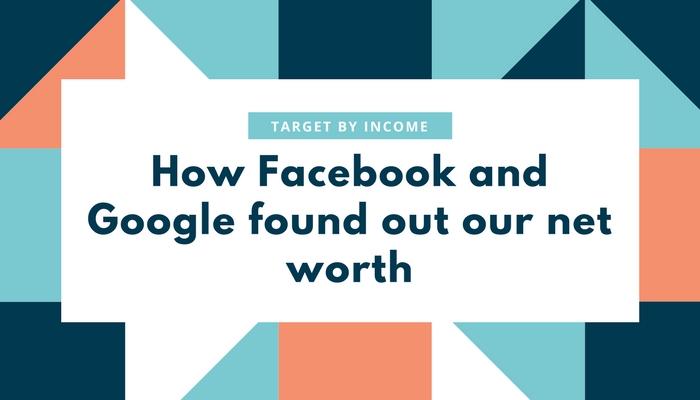Targeting online is becoming more and more defined. Due to the huge databases with customer behaviour of online giants you can now very clearly outline the audience for your PPC(pay-per-click) campaign. The information we share about ourselves online has made it possible for big channels like Facebook, Google and LinkedIn to get to valuable data, including out net worth.
At the moment this feature is not available in a few big markets only like UK, USA and India and every platform has a different feature by which we can target by their economic status.
Facebook.
Finding out the Facebook knows in depth about customer’s shopping behaviour, income category and small family details makes you first uncomfortable. Second, you wonder how on earth your posts on Facebook classified you as a “a frequent luxury item consumer” or “green mom”.
Indeed Facebook now has amazing capabilities of targeting people by their background, but this was not possible purely with the information you shared there. In 2013 Facebook forged partnerships with data brokers including Epsilon, Acxiom, and Datalogix. These are companies that collect data from banks, like Wells Fargo, HSBC, big retailers like Macy’s. It is believed that Acxiom has practically data about every U.S. citizen.
Even though such access to personal information, might sound scary, it can be used to dramatically improve the user’s experience online by showing only the most relevant ads at the time we are most likely to need this product.
If you are targeting high spenders in India, choose from the drop down menu of your Ad Set Builder Behaviour=>Customer Classification=> (A) affinity for high-value goods, in India or (A+B) affinity for mid to high-value goods, in India. In this way if you are trying to market a luxury or high cost product you will avoid paying for irrelevant clicks.

In UK you can do even finer selection by choosing Demographics=>Financial=>Income or Net worth. Income segmentation is pretty straightforward. High affluence usually classifies individuals with US$100,000 to US$1,000,000 of liquid financial assets plus an annual household income over US$75,000.

Google.
Google is also working with big data brokers, including Axiom and even though not as stalky as Facebook, already has access to income data in the U.S. Google Adwords since recently offers income targeting and not many marketers know about this feature. When building a campaign you can access this option in the Settings by choosing Advanced Search at the Location tab and then refining by demographics.
1.
2.
3.

